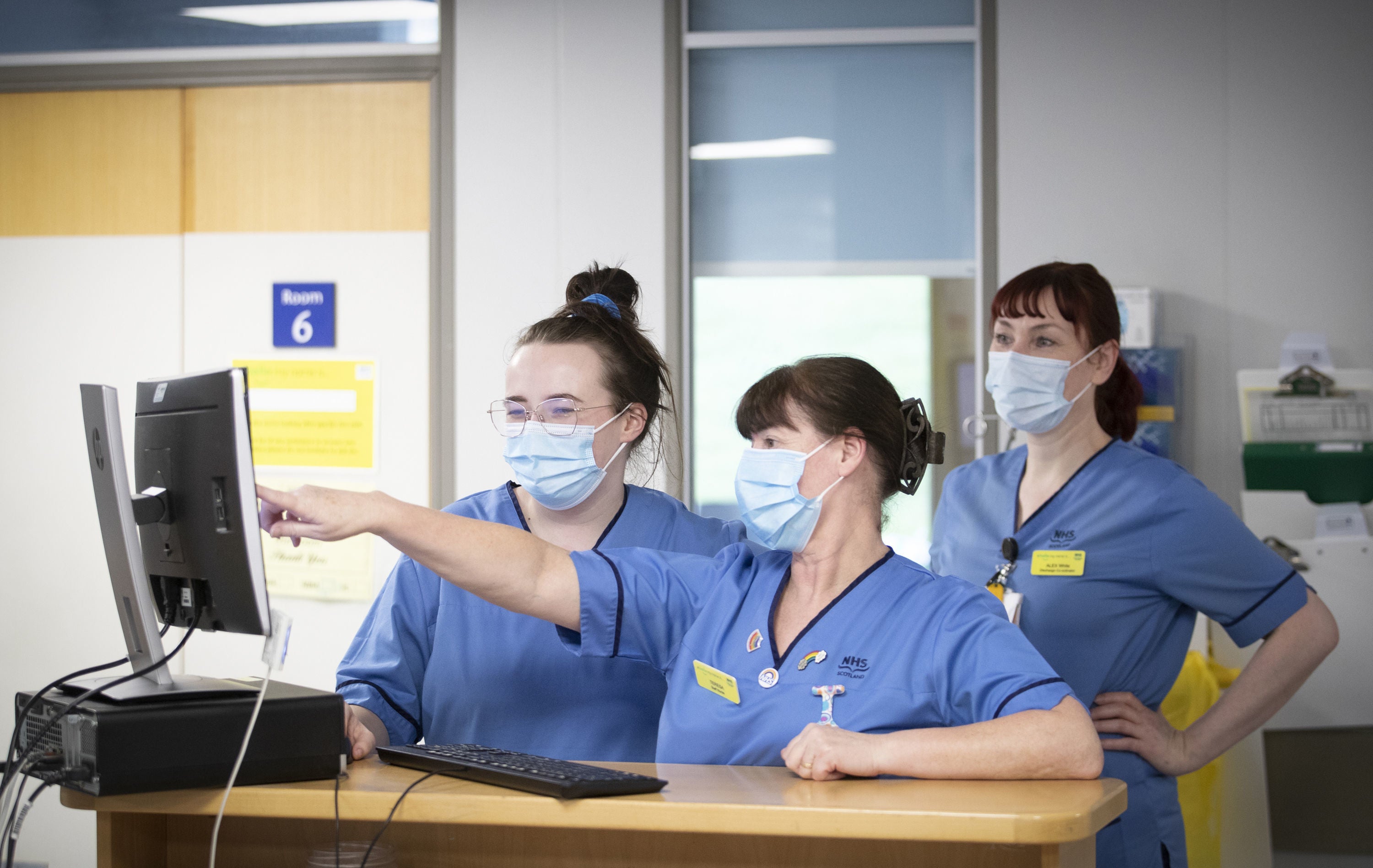Newly qualified nurses have been left struggling to find entrance-level jobs, as budget cuts have forced the NHS to cut vacancies by a quarter, The Independent has learnt.
NHS leaders said the financial squeeze on the sector meant employers have cut jobs across the board, including frontline staff. New nurses described being forced to take healthcare assistant roles as they compete for a handful of positions.
Labour described the situation as “absurd” and pledged to address the problem.
Dr Nichola Ashby, deputy chief nurse for the Royal College of Nursing, called on NHS England and healthcare employers to take urgent action to ensure this year’s graduates get the jobs they are trained to do.

‘Growing discontent’
Despite the NHS facing widespread staffing issues, and while other roles are available, student nurses are struggling to find jobs, according to the Council of Deans of Health, which represents UK universities teaching nurses and midwives.
Two student nurses due to qualify this year told The Independent that when they search for roles specifying “newly qualified” on the NHS’s internal website, fewer than ten positions are shown.
One second-year nurse, Heather McWhey, said only two out of her class of 30 have found jobs in the last year, and the majority will now need to work as healthcare assistants until they can find roles.
Ms McWhey said she has been looking for a job since September but has had no luck. She fears she will not have any place to work when she graduates in two months.
She said: “My cohort [of students] has been discussing what we’re going to do. Some of us are going to defer our [qualification] – something we never thought we’d do – and go and work as a healthcare assistant in the hospitals until we can get a vacancy. Who knows when that will be.”

A Department of Health and Social Care spokesperson said: “It is absurd that qualified healthcare professionals cannot find jobs in an NHS that is under-resourced, and patients are subsequently not receiving the care they deserve. We are determined to change that.”
Ed Hughes, chief executive for the Council of Deans, said: “We have heard from our members that in comparison to previous years, in some regions and for some job roles there are fewer vacancies this year as NHS employers review their staffing requirements in relation to their existing vacancies and financial position.”
Billy Palmer, a senior fellow at the Nuffield Trust, told The Independent that in the last year overall nursing jobs advertised by the NHS fell from 41,600 to 31,300. Figures are not available for roles for newly qualified nurses, nor where they are in the country.
According to data company Statista, 29,080 students graduated in nursing in 2022.
Mr Palmer said that given the scale of the backlog in planned care, the drop in hiring is not due to a plateauing of patient need.
“Rather, it is likely that behind this latest phenomenon lies a mix of tightening NHS finances and capacity constraints, whether that is in physical buildings, beds and clinical resources, or supervision and management,” he said.
“Whatever the reason, the NHS will need to get an urgent grip or else growing discontent from graduates unable to find suitable roles is likely to be a further setback on the ambition of creating a sustainable NHS nursing workforce.”

Separate data gathered by the Recruitment and Employment Confederation suggests the biggest decrease in the last year has been in adverts for children’s nursing posts, which dropped by 25 per cent, and fordental nurses, down 36 per cent.
Adverts for midwives dropped 19 per cent and for community nurses by 23 per cent.
Matthew Taylor, chief executive of the NHS Confederation, told The Independent: “It is no secret that the NHS is operating under immense financial pressure, and the findings of our survey earlier this year showed just how stark this pressure has become.

“We know some services are cutting or freezing both clinical and managerial posts, as well as cutting some patient services and having to consider ever more drastic measures to balance the books.
“One of the knock-on effects of this is that leaders are being forced to make immediate cuts to staffing levels and some services to achieve stringent efficiency targets.”
Sir Julian Hartley, chief executive for NHS Providers, warned that leaders are concerned about how the short-term controls on staffing will impact trusts’ ability to meet future demand.
”Trusts are exploring different options to curb staff costs, including reviewing planned staffing increases, reducing agency expenditure and, in some cases, reducing permanent staff levels altogether,” he said.
This week, NHS England chief executive Amanda Pritchard wrote to NHS leaders following Rachel Reeves’ announcement of a £22bn black hole in the public accounts.
She told health leaders the chancellor’s comments were confirmation that the government “has no financial headroom this year”, saying the NHS would need to focus on living within its means.
A spokesperson for NHS England said: “Nurses and midwives are an essential part of the workforce and given that the latest figures show that vacancies remain high at 31,000, we will continue to work with services across the country and universities to ensure that graduates can secure jobs in available roles in the NHS.”
